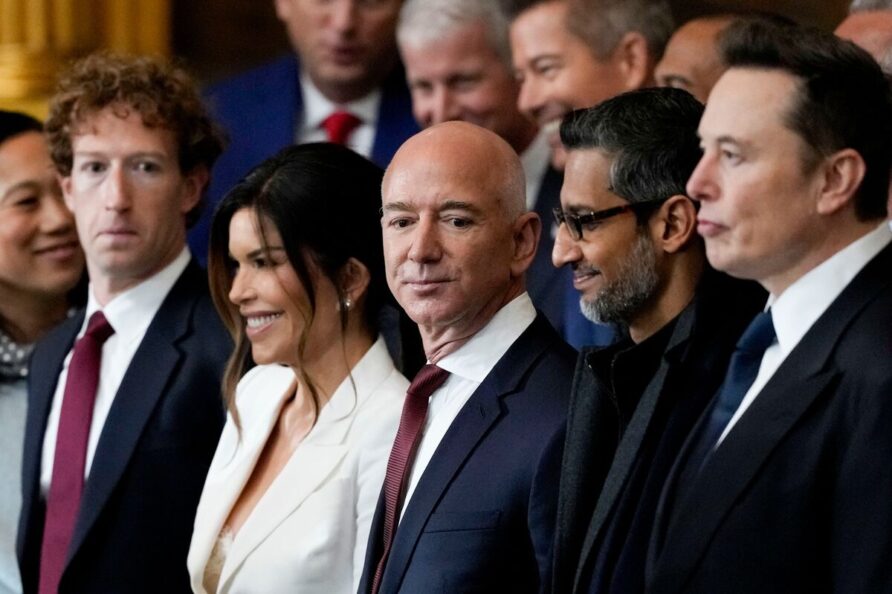Billionaires Gather for Trump’s Inauguration Ceremony
In a ceremony marked by both grandeur and prominence, President Donald Trump was surrounded by some of the wealthiest individuals in the world during his inauguration. This historic event showcased a gathering that collectively boasted a staggering net worth of over $1.3 trillion.
Wealthy Guests at the Inauguration
Seated prominently behind the Trump family were notable luminaries from the tech and business worlds: Elon Musk, Jeff Bezos, and Mark Zuckerberg, all of whom rank at the top of the Bloomberg Billionaires Index. Musk, CEO of Tesla and SpaceX, Bezos, founder of Amazon, and Zuckerberg, co-founder of Facebook, are influential figures whose ventures have significantly shaped the global economy and technology landscape. Their presence at the inauguration not only highlighted the ceremony’s significance but also reflected the intertwining of politics and the business elite.
Among the prominent attendees were Bernard Arnault, the CEO of LVMH and recognized as France’s richest man, Sergey Brin, co-founder of Alphabet Inc., and Miriam Adelson, majority owner of Las Vegas Sands Corp. This gathering of billionaires underscored the connections that exist between high wealth and political power, raising discussions on the influence of affluent individuals in shaping policy and governance.
Implications and Context
The convergence of such wealth at a presidential inauguration is not merely a matter of optics; it may have broader implications regarding governance and economic policy direction. Observers have pointed out that the close relationship between political leaders and wealthy business figures can impact legislative agendas and regulatory frameworks, often prompting discussions about potential conflicts of interest and the ethical dimensions of such associations.
Critics argue that this close-knit relationship may favor the interests of the wealthy over those of the general public, potentially skewing policy in a direction that benefits the elite. In contrast, supporters of these connections often assert that collaboration between business leaders and government can foster economic growth and innovation.
A Sign of Shifting Influence
The presence of these billionaires during Trump’s inauguration also signals a changing dynamic in American politics, where financial influence can translate into political capital. As large donors and corporate leaders gain visibility in the political process, it raises questions about the dependencies that may develop between elected officials and their affluent backers, further complicating the relationship between democracy and wealth.
Conclusion: A Reflection on Wealth and Power
The inauguration of Donald Trump, characterized by the presence of some of the world’s most powerful business figures, serves as a poignant reminder of the intricate ties between wealth and political influence in contemporary society. This convergence of interests signifies both the potential for economic collaboration and the dangers of an increasingly oligarchic system where wealth can wield significant power over democratic processes.
As the effects of this dynamic unfold in the coming years, it will be crucial for the public and policymakers to carefully consider the implications of such influential alliances, ensuring that they serve the broader interests of society. The enduring question remains: How will this close relationship between wealth and politics shape the future of governance in the United States and beyond? The answer to this question likely holds significant consequences for all citizens in the years to come.









